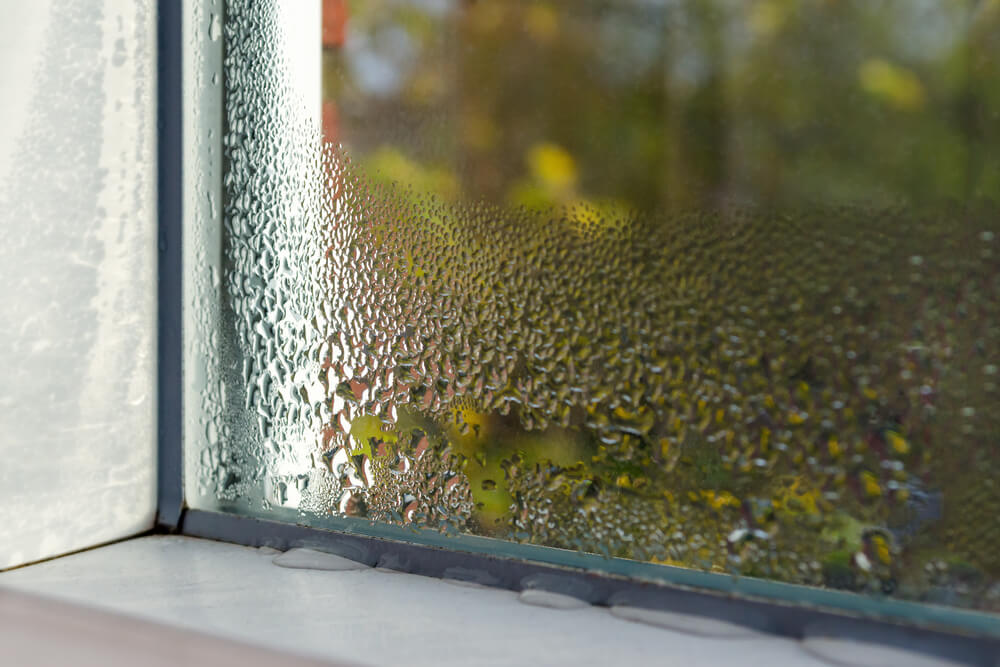
Finding the right conditions to live comfortably in your home is important. However, maintaining your desired humidity level can be a challenge. Throughout the year, depending on how humid the air is, you may need the help of a humidifier or dehumidifier to achieve the right comfort level for you and your family.
Understanding the differences between a humidifier and a dehumidifier, and when to use one, are important questions to ask in determining which is the right fit for your home.
What Is a Humidifier?
Humidifiers are great for a home that is too dry and stuffy, as they increase moisture and are commonly used during the winter when the air is dry. Your body tends to experience discomfort in these dry conditions. Humidifiers can keep your skin from drying out and effectively control allergies and nasal congestion.
You will want to install a whole-house humidifier if you are experiencing any of the following issues:
- Itchy and Dry Skin
- Dry and Bloody Noses
- Sore Throat And Dry Mouth
- Colds And Coughs
- Chapped Lips
- Static Electricity
- Cracks In Your Home
Because moist air feels warmer, you can actually lower your temperature by several degrees and feel comfortable. This is because your body is designed to cool itself by sweating. When the moisture on the skin evaporates, it makes you feel cooler. Therefore, when the air is full of moisture, the sweat on our skin does not evaporate, so you feel warmer.
Humidifiers must be cleaned regularly to prevent mold growth. When using this device, it’s best to use distilled water and dump any extra water out of the humidifier when you are done using it. Most models feature warm or cold moisturizing settings, making them ideal for periods when the cold nights replace the hot days.
A benefit of these units is that you can leave them on all day and maintenance is easy to conduct. You can also save money on your energy bills; if you’ve been raising the temperature of your heating system to make the air warmer, you will increase your energy bills. Since a humidifier will naturally increase the temperature, you won’t have to crank up your thermostat’s temperature.
There are two different types of humidifiers to consider when shopping for one for your home:
Warm Mist
A warm mist humidifier operates by heating water to produce warm vapor that is then released into the air. The warm mist provides a comforting ambiance, especially during colder months, and can help alleviate congestion and respiratory discomfort. These units provide various benefits, from cozy comfort to relief of respiratory issues.
Cool Mist
A cool mist humidifier disperses room-temperature or cool water into vapor and is perfect for homes that are in warmer environments. They are available in various forms, including evaporative, ultrasonic, and impeller humidifiers, each with its own unique method of generating cool mist.
One significant advantage of cool mist humidifiers is that they do not require a heating element, making them generally safer and more energy-efficient.
What Is a Dehumidifier?
Dehumidifiers are designed to decrease the moisture in the air. These devices are commonly used in the summer when the air is warm and humid. The two most popular dehumidifier styles are:
Refrigerant
A refrigerant dehumidifier uses much of the same process as your fridge at home. The refrigeration process cools a metal plate on which moisture from the air condenses. A fan constantly draws the room air through the dehumidifier and over the cool metal plates. Over time, more of the moisture condenses onto the plate and drips into the dehumidifier’s water tank.
Desiccant
Desiccant dehumidifiers absorb water from the air. During the rotation cycle, a proportion of the wheel passes through a stream of warm air, which reactivates the desiccant by driving off the moisture. This condensed water is then collected in the dehumidifiers collection tank or automatically drained out via a tube from the back of the unit to the outside.
High humidity can trigger allergic reactions and contribute to ongoing allergies. Humidity levels above 50 percent can breed dust mites, mildew, and mold, triggering allergies or other health problems. High humidity makes it easier for molds to reproduce, allowing them to appear virtually anywhere and damage whatever they grow on.
Whole-house dehumidifiers can help control the level of moisture in the air. Most people feel comfortable when the relative humidity in their home is between 35 and 50 percent.
Do I Need a Humidifier or Dehumidifier For My Home?
There are many factors that go into whether you need a humidifier or a dehumidifier for your home. One of the biggest factors is the location of your home. Depending on where you live, or even depending on the time of year, your home will often be too dry or too humid. If you notice your skin is dryer or you are experiencing dry skin or allergies, you may need a humidifier in your home. If you are experiencing significant moisture levels in your home, then a dehumidifier is right for your home.
Having both a humidifier and a dehumidifier makes for an excellent balance of keeping your household in the best possible living conditions. They will also prevent you from experiencing health issues, which is even more important.
Improve Indoor Air Quality Today
Personal health must be a top priority for everyone. Is your home equipped with the right appliances to ensure you can safely live in your home? If you are finding your home is either too humid or too dry, do not hesitate to call a trusted indoor air quality professional to help you find the humidifier or dehumidifier that is right for you and your home.
Home Comfort Experts offers fast and reliable humidifier and dehumidifier installation, repair, and maintenance services in Indiana and Michigan. Contact us at (574) 319-9241 to learn about our heating, air conditioning, and indoor air quality services.



